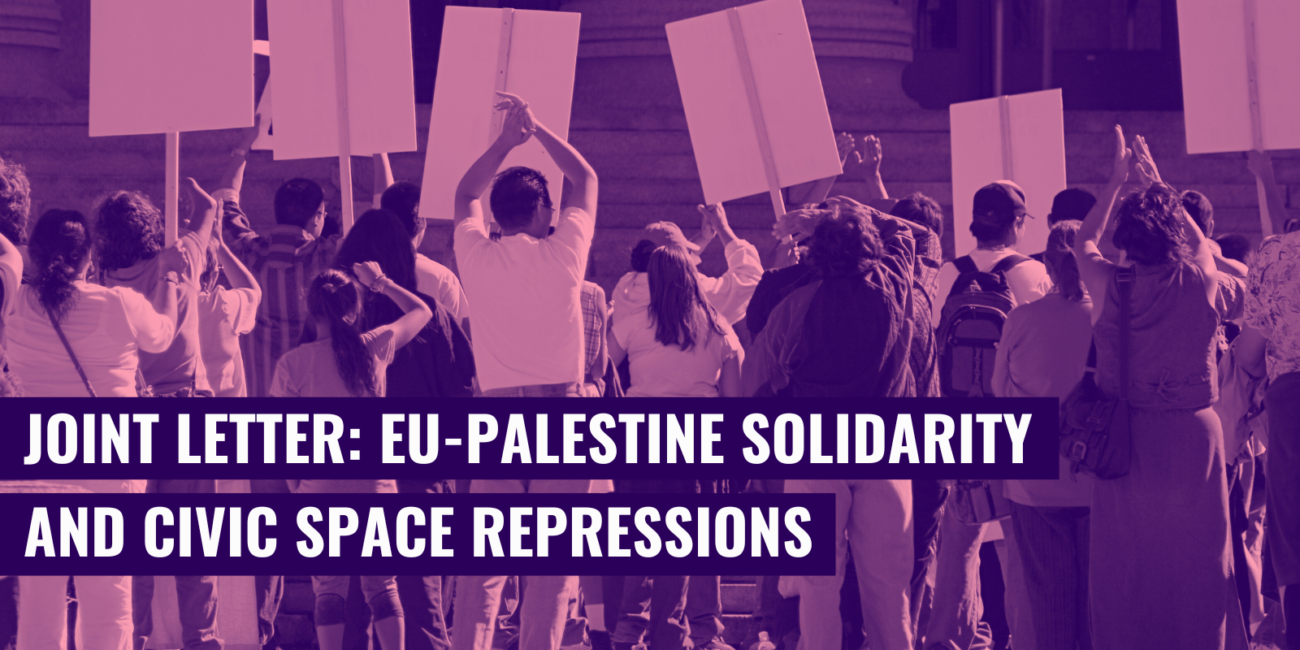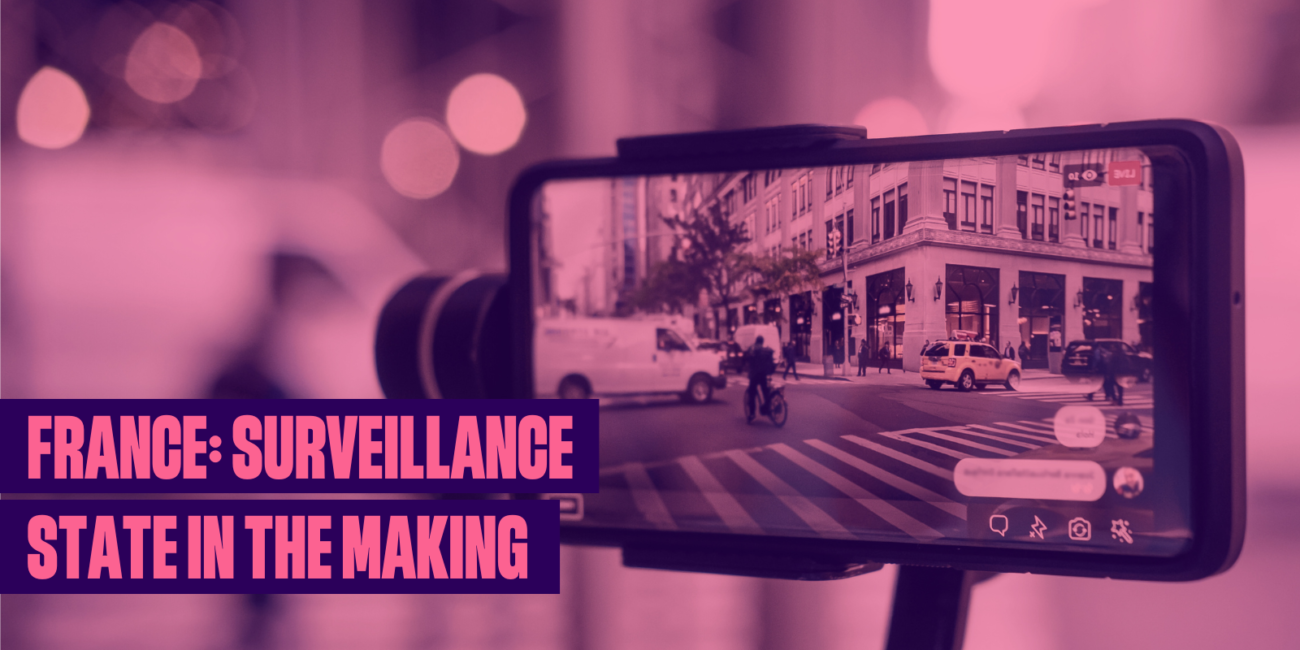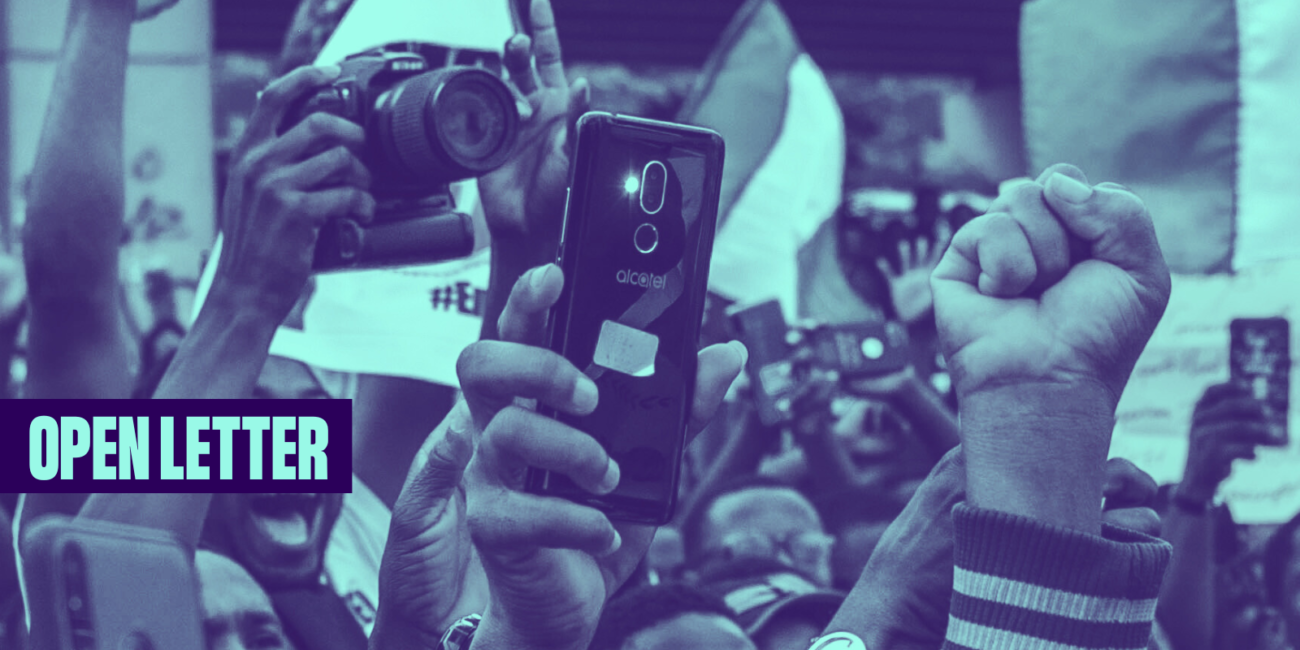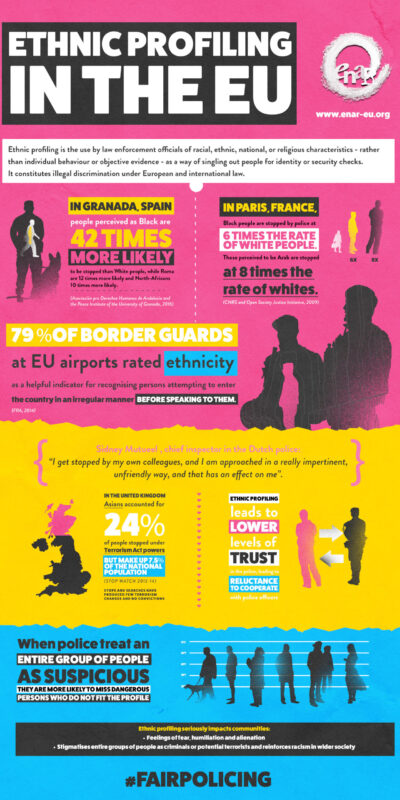SECURITY & POLICING

Some counter-terrorism measures and policing practices can be discriminatory and are having a disproportionate and damaging impact on ethnic and religious minorities and migrants in Europe. We need fair security and policing policies grounded in human rights, equality and long term social inclusion.
Read More
The terrorist attacks in 2015 and 2016 and heightened security concerns have led to a new set of counter-terrorism measures at both EU and national levels.
While security threats require effective action, the EU and its Member States are responding to these by reinforcing a repressive/securitisation approach rather than develop a balanced approach that would both reinforce security and human rights enjoyment for all, as well as focus on long-term inclusion measures.
The restrictions on human rights that result or could result from current counter-terrorism measures are significant, and are having a disproportionate impact on ethnic and religious minorities, including Muslims, people of African descent, migrants, or people perceived to be from these groups. Many innocent Muslims are for instance targeted mainly on the basis of their religious practice, with no evidence pointing to their involvement in any criminal act.
In addition, relations between the police and law enforcement on the one hand, and ethnic and religious minorities and migrants on the other, remain tense.
Ethnic profiling by police and border guards – being singled out for identity checks or searches because of one’s race, ethnicity or perceived religion, rather than on the basis of individual behaviour or objective evidence – is an important factor. In the context of counter-terrorism and stricter migration policies, ethnic profiling has been reported to be increasing in several EU member states. This also generates mistrust in police, making the very communities whose support is necessary for fighting crime reluctant to cooperate with law enforcement authorities.
Police violence and abuse against minorities is also frequent in Europe. Excessive use of force is common in police operations targeting undocumented migrants, Roma, Muslims and people of African descent.
The lack of police investigation into racist crime adds to difficult police/communities relations. There have been cases of police failing to investigate the potential racist elements of a crime, even when racist language was used at the time of the crime, and cases of victims being treated as perpetrators by the police.
What are we doing about it?
We work at EU and national levels to ensure trust building and fair security and policing policies grounded in human rights, equality and long term social inclusion.
We call for EU standards on fair policing that would support States’ action to outlaw and counter ethnic profiling.
We advocate for police and security forces to be trained on fundamental rights, non-discrimination, procedural justice and unconscious bias, and accountable for their role as interfaces between residents/citizens and the State.
We monitor the impact of counter-terrorism and counter-radicalisation measures on groups at risk of racism. We call for the inclusion of human rights safeguards by governments as well as impact assessment of these measures, in consultation with civil society organisations. We are also pushing for proper monitoring and independent oversight mechanisms to ensure accountability of law enforcement authorities.
QUICK
FACTS
Black people are stopped by police at 6 times the rate of White people in the United Kingdom and Asians at almost twice the rate of Whites
In Granada, Spain, Roma are 12 times more likely to be stopped than White people
79 % of border guards at EU airports rate ethnicity as a helpful indicator for recognising persons attempting to enter the country in an irregular manner
News & Resources
FAQs
What is ethnic profiling?
Ethnic profiling is the use by law enforcement officials of racial, ethnic, national, or religious characteristics – rather than individual behaviour or objective evidence – as a way of singling out people for identity or security checks. It constitutes illegal discrimination under European and international law.
Is ethnic profiling effective?
No. Ethnic profiling alienates some of the very people whose cooperation is necessary for effective crime detection and law enforcement. In addition, when police treat an entire group of people as suspicious, they are more likely to miss dangerous persons who do not fit the profile. Stops and searches conducted under counterterrorism powers in Europe have produced few terrorism charges and no convictions.
What is the impact of discriminatory policing practices?
Migrant and ethnic and religious minorities across Europe are disproportionately affected by ethnic profiling and discriminatory treatment by the police. It leads to feelings of fear, humiliation and alienation, and of being excluded from society. It not only affects individuals, but also their families and entire communities. It generates lower levels of trust in the police, leading to reluctance to cooperate with police officers. It also stigmatises entire groups of people as criminals or potential terrorists; and legitimates and reinforces racism and stereotyping in the wider society.
What’s the existing EU legislation on counter-terrorism?
The EU in 2016 has worked towards a Directive on combating terrorism, to be formally adopted in 2017 [link]. The foreseen criminal offences in the directive’s punitive measures may be disproportionately applied and implemented in a manner that discriminates against specific ethnic and religious communities.
Despite the inclusion of a general human rights safeguarding clause the Directive fails to fully protect human rights within the EU:
![]() The directive repeats the EU’s already overly broad definition of ‘terrorism,’ which permits states to criminalise, as terrorism, public protests or other peaceful acts that they deem ’seriously destabilise the fundamental political, constitutional, economic or social structures of a country or an international organisation.’
The directive repeats the EU’s already overly broad definition of ‘terrorism,’ which permits states to criminalise, as terrorism, public protests or other peaceful acts that they deem ’seriously destabilise the fundamental political, constitutional, economic or social structures of a country or an international organisation.’
![]() Significantly, the directive requires states to criminalise a series of preparatory acts that may have a minimal or no direct link to a violent act of terrorism, and may never result in one being committed. For example the offences of participating in a terrorist group, travelling or receiving training for terrorist purposed are not adequately defined. Unless these broadly outlined offences are subject to careful drafting and strong safeguards in national law, they are likely to lead to violations of rights, including the right to liberty and freedoms of expression, association, and movement.
Significantly, the directive requires states to criminalise a series of preparatory acts that may have a minimal or no direct link to a violent act of terrorism, and may never result in one being committed. For example the offences of participating in a terrorist group, travelling or receiving training for terrorist purposed are not adequately defined. Unless these broadly outlined offences are subject to careful drafting and strong safeguards in national law, they are likely to lead to violations of rights, including the right to liberty and freedoms of expression, association, and movement.
![]() The directive criminalises the public distribution of messages, including messages that ‘glorify’ terrorist acts, if the distribution is intentional and causes a danger that a terrorist offence may be committed. However, such a low threshold is likely to lead to abuse if not limited to incitement that is directly causally responsible for increasing the actual likelihood of an attack.
The directive criminalises the public distribution of messages, including messages that ‘glorify’ terrorist acts, if the distribution is intentional and causes a danger that a terrorist offence may be committed. However, such a low threshold is likely to lead to abuse if not limited to incitement that is directly causally responsible for increasing the actual likelihood of an attack.
MEMBERS
ENAR member organisations working on Security & Policing
JUST West Yorkshire (United Kingdom)
SEMPER Scotland (United Kingdom)
Stop le contrôle au faciès (France)
Initiative Schwarze Menschen in Deutschland – ISD-Bund (Germany)
FOCUS
Research on the impact of counter-terrorism
ENAR is working at EU and national levels to ensure trust building and inclusive security and policing policies is grounded in human rights, equality and long term social inclusion.
Documenting the impact of discrimination is paramount to achieving justice. Discrimination, whether at individual or structural levels, is hard to document and prove, and criminal justice and security fields are no exceptions. However, given the securitisation shift of social and equality policies as well as the potential impact of new measures on human rights and democracy, we cannot afford to leave this field unchecked.
The ENAR research project on the impact of counter-terrorism and counter-radicalisation measures on groups at risk of racism aims to:
![]() Document the impact of terrorism related criminal and administrative measures on groups and individuals.
Document the impact of terrorism related criminal and administrative measures on groups and individuals.
![]() Support the advocacy activities related to discrimination and security, counter terrorism and counter radicalisation policies at a national and local level.
Support the advocacy activities related to discrimination and security, counter terrorism and counter radicalisation policies at a national and local level.
![]() Gather testimonies and cases to bring visibility to affected groups and individuals.
Gather testimonies and cases to bring visibility to affected groups and individuals.
![]() Show counter-productivity and inefficiency of the newly adopted measures.
Show counter-productivity and inefficiency of the newly adopted measures.
![]() Unveil the racist dimension in the adoption and implementation of policies/legislation.
Unveil the racist dimension in the adoption and implementation of policies/legislation.
Methodology
This qualitative research project used a mixed methods approach of in-depth interviews with professionals working in the area of counter terrorism and prevention of violent extremism and focus groups with those at risk of racism. The field work took place mostly in 2019 in different cities in France, Germany, Hungary, Poland and Spain.
Roundtables meetings
In 2019/2020 roundtable meetings with policy makers, civil society organisations and other stakeholders were organised in the five countries where the research is taking place, to discuss the emerging findings and develop the recommendations.
Outputs for 2020
![]() 5 country briefings in English and the national language for each country
5 country briefings in English and the national language for each country
![]() 1 comparative report
1 comparative report
![]() 1 executive summary report
1 executive summary report
Other relevant work
|
ENAR has published a report to assess and document the Impact of the counter-terrorism and counter-radicalization measures on groups at risk of discrimination and racism. The report draws on desk research and 211 interviews in 5 Member States (France, Germany, Hungary, Poland, and Spain). The report finds that key elements of the counter-terrorism and counter-radicalisation measures constructed, sustained, and reinforced the perception of Muslims as a potential security threat. Report Summary with national executive summaries for France, Germany, Spain, Hungary, and Poland.
|
ENAR has produced a toolkit that provides anti-racism NGOs and activists with tools and methodologies to document the discriminatory impact of counter-terrorism and counter-radicalisation measures on communities at risk of racism, whether directly or indirectly.
The toolkit includes tools to monitor discrimination as a consequence of counter-terrorism and counter-VERLT measures in criminal law, soft laws and policies, administrative measures and through the actions of other institutions and structures, that are relevant in the European Union context.
For more information, email Ojeaku Nwabuzo, Senior Research Officer: ojeaku@enar-eu.org
DARE - Dialogue about Radicalisation & Equality
DARE – Dialogue About Radicalisation and Equality – is a major pan-European research project which includes 17 research teams in 13 different countries – Belgium, Croatia, France, Germany, Greece, Malta, Norway, Poland, Russian Federation, The Netherlands, Tunisia, Turkey and the UK, composed of sociologists, ethnographers or political scientists. It runs for four years, from 2018 to 2021.
The project investigates young people’s encounters with agents of radicalisation, how they receive and respond to those calls, and how they make choices about the paths they take. It aims to broaden understanding of radicalisation, demonstrating that it is not located in any one religion or community alone, and to explore the effects of radicalisation on society.
Outputs will include an extensive review of knowledge in three areas: the historical context of current patterns of radicalisation; European, national and regional counter-radicalisation and de-radicalisation policies and interventions; and how sustained inequalities impact upon radicalisation.
The project will also generate new empirical research in offline and online milieus designed to understand media-assisted self-radicalisation; radicalisation in Islamist milieus; and radicalisation in anti-Islam extreme right milieus.
ENAR’s role in the project is to disseminate the research findings at EU level but also at national level in Belgium, as well as testing with educators, social practitioners and youngsters practical tools on resilience stemming from the research.
The project is funded under the EU Horizon 2020 Framework Programme.
![]() Policy brief: Drivers of self-radicalisation and digital sociability
Policy brief: Drivers of self-radicalisation and digital sociability
![]() Policy brief: Youth radicalisation and inequality: what the evidence shows
Policy brief: Youth radicalisation and inequality: what the evidence shows
![]() Blog article: Radicalisation in a new light: from security to social inclusion and equality
Blog article: Radicalisation in a new light: from security to social inclusion and equality
![]() Watch this video explaining what the “DARE – Dialogue about Radicalisation and Equality” project is all about
Watch this video explaining what the “DARE – Dialogue about Radicalisation and Equality” project is all about










